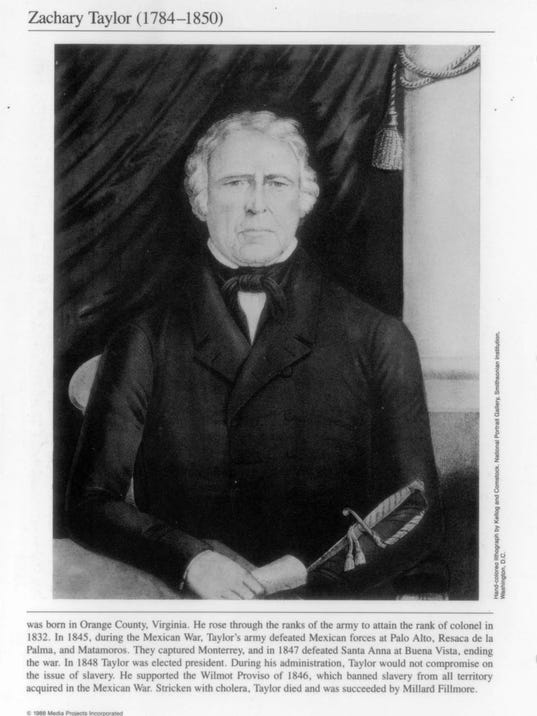The post-Trump party needs to face its demons and divisions, not ignore them as it did in 1852.
Whether Donald Trump wins or loses in November, the Republican Party will confront profound questions as to what it is, what it stands for, and whom it represents. How it handles those questions will determine whether there is a GOP, as we now know it, on America’s future political landscape.
 |
| President James K. Polk |
Two past elections, over a century apart, suggest both the immediate challenges the GOP faces and the internal questions it must resolve. In 1848, having lost the previous presidential election to Democrat James K. Polk, an election it expected to win, the Whig party faced a dilemma. The Whigs had always stood for certain principles such as economic and industrial growth, bank credits to fund expansion, tariffs to protect indigenous industries, and government-funded improvements of what we today call “infrastructure.” But they differed profoundly on slavery and territorial expansion.
 |
| CLICK PHOTO to ENLARGE |
Following Polk’s victory in the election of 1844, and the subsequent Mexican War, which most Whigs opposed, in 1848 the Whigs nominated Gen. Zachary Taylor, a Mexican War hero and a Louisiana slave owner. Taylor had only one appeal for the Whigs: He was popular and could win.
Henry Clay’s biographers, David and Jeanne Heidler, wrote that Taylor “had a tin ear, was both opinionated and instinctively wrong, and tended to make the worst political decisions with a certainty that increasingly exasperated the men who were trying" to elect him. Soon after the Whig national convention ended, several senior leaders started a campaign to remove him from the ticket.
Nonetheless, Taylor won, died in office and was succeeded by Millard Fillmore, an anti-slavery moderate from New York. Fillmore sought to deal with the slavery issue by supporting its expansion into the territories won in President Polk’s Mexican War. Anti-slavery Whigs punished him in 1852 by nominating New Jersey’s Winfield Scott, who lost. The demise of the Whigs soon followed.Read the rest of this op-ed HERE.
If you like what you see, please "Like" us on Facebook either here or here. Please follow us on Twitter here.


No comments:
Post a Comment